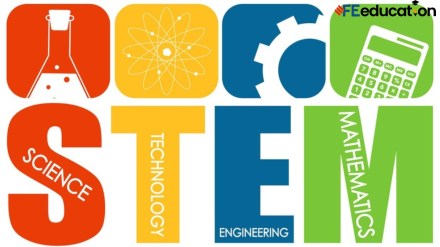By Ajith Kumar NS
Gone are the days when education was limited inside the four walls. In recent years, ever since digitalisation took centre stage, the education sector has witnessed various changes. In this new paradigm, the future belongs to those who can see beyond or think outside the box. This is where STEM education comes in. STEM education, which stands for Science, Technology, Engineering, and Mathematics, surfaced as a critical aspect of modern education, preparing the next generation of innovators and entrepreneurs.
In the present era, STEM education also forms stepping stones for innovation-based learning. Innovation-based learning, which aligns with the National Education Policy 2020 (NEP) and the National Skills Development Programme, provides students with the opportunity to develop 21st Century Skills. Furthermore, since the government focuses on initiatives such as the “Make in India” Creativity Mission, educational institutions are now emphasising the importance of nurturing creativity from a young age. Thus, to thrive in the digital age, young kids need to master cutting-edge skills in Practical Science, Design Thinking, Coding, Mechatronics, Automation, IoT, AI, and Robotics.
Here, let’s delve into how innovation-based learning helps in fostering young entrepreneurs:
Develop an entrepreneurial mindset: In today’s competitive era, STEM education alone is not enough. Thus, innovation-based learning emerged as a dynamic approach to nurturing an entrepreneurial mindset. Instead of memorising facts and figures, students can roll up their sleeves for challenges and can use their knowledge and skills in real-world contexts. Whether it is developing a business plan, designing a product prototype, or pitching an idea to investors, these practical experiences deepen student’s understanding of entrepreneurship and prepare them for the challenges they will face in the digital age.
Encourage early connections and internship opportunities: Thanks to innovation-based learning, students have the opportunity to connect with industry professionals and mentors early on. Through internships, apprenticeships, and mentorship programs, they gain invaluable insights into the workings of the business world. These early connections not only provide guidance and support but also open doors to future collaboration and networking opportunities. By immersing themselves in these experiences, students kickstart their entrepreneurial journey and fast-track their path to success.
Cultivate resilience and adaptability: A critical talent in this age of rapid technological innovation is flexibility. Through innovation-based learning, students have the capacity to adapt to change and deal with uncertainty. Engaging with new technology, trying out novel approaches, and learning from mistakes help students become resilient and confident enough to take on unforeseen obstacles head-on.
Youth entrepreneurs: Future of tomorrow!
According to Grand View Research, the market for K–12 STEM education worldwide is projected to expand at a CAGR of 14.6% by 2030, with the Asia Pacific region being no exception. As a result, owing to the growth trajectory of STEM education and its history, India is investing more in STEM. In fact, innovation-based learning is also revolutionising education by empowering students with the skills, mindset, and experiences needed to thrive in the digital era. With access to innovative STEM-based learning, young Indians can unleash their creativity, explore their passions, and make a meaningful difference in the world.
The author is the Director of YuviPep. Views are personal.
